- Home
- Philip Pullman
His Dark Materials Omnibus Page 3
His Dark Materials Omnibus Read online
Page 3
“That photogram was taken with a standard silver nitrate emulsion,” Lord Asriel said. “I’d like you to look at another one, taken from the same spot only a minute later, with a new specially prepared emulsion.”
He lifted out the first slide and dropped another into the frame. This was much darker; it was as if the moonlight had been filtered out. The horizon was still visible, with the dark shape of the hut and its light snow-covered roof standing out, but the complexity of the instruments was hidden in darkness. But the man had altogether changed: he was bathed in light, and a fountain of glowing particles seemed to be streaming from his upraised hand.
“That light,” said the Chaplain, “is it going up or coming down?”
“It’s coming down,” said Lord Asriel, “but it isn’t light. It’s Dust.”
Something in the way he said it made Lyra imagine dust with a capital letter, as if this wasn’t ordinary dust. The reaction of the Scholars confirmed her feeling, because Lord Asriel’s words caused a sudden collective silence, followed by gasps of incredulity.
“But how—”
“Surely—”
“It can’t—”
“Gentlemen!” came the voice of the Chaplain. “Let Lord Asriel explain.”
“It’s Dust,” Lord Asriel repeated. “It registered as light on the plate because particles of Dust affect this emulsion as photons affect silver nitrate emulsion. It was partly to test it that my expedition went north in the first place. As you see, the figure of the man is perfectly visible. Now I’d like you to look at the shape to his left.”
He indicated the blurred shape of the smaller figure.
“I thought that was the man’s dæmon,” said the Enquirer.
“No. His dæmon was at the time coiled around his neck in the form of a snake. That shape you can dimly see is a child.”
“A severed child—?” said someone, and the way he stopped showed that he knew this was something that shouldn’t have been voiced.
There was an intense silence.
Then Lord Asriel said calmly, “An entire child. Which, given the nature of Dust, is precisely the point, is it not?”
No one spoke for several seconds. Then came the voice of the Chaplain.
“Ah,” he said, like a thirsty man who, having just drunk deeply, puts down the glass to let out the breath he has held while drinking. “And the streams of Dust …”
“—Come from the sky, and bathe him in what looks like light. You may examine this picture as closely as you wish: I’ll leave it behind when I go. I’m showing it to you now to demonstrate the effect of this new emulsion. Now I’d like to show you another picture.”
He changed the slide. The next picture was also taken at night, but this time without moonlight. It showed a small group of tents in the foreground, dimly outlined against the low horizon, and beside them an untidy heap of wooden boxes and a sledge. But the main interest of the picture lay in the sky. Streams and veils of light hung like curtains, looped and festooned on invisible hooks hundreds of miles high or blowing out sideways in the stream of some unimaginable wind.
“What is that?” said the voice of the Sub-Rector.
“It’s a picture of the Aurora.”
“It’s a very fine photogram,” said the Palmerian Professor. “One of the best I’ve seen.”
“Forgive my ignorance,” said the shaky voice of the old Precentor, “but if I ever knew what the Aurora was, I have forgotten. Is it what they call the Northern Lights?”
“Yes. It has many names. It’s composed of storms of charged particles and solar rays of intense and extraordinary strength—invisible in themselves, but causing this luminous radiation when they interact with the atmosphere. If there’d been time, I would have had this slide tinted to show you the colors; pale green and rose, for the most part, with a tinge of crimson along the lower edge of that curtain-like formation. This is taken with ordinary emulsion. Now I’d like you to look at a picture taken with the special emulsion.”
He took out the slide. Lyra heard the Master say quietly, “If he forces a vote, we could try to invoke the residence clause. He hasn’t been resident in the College for thirty weeks out of the last fifty-two.”
“He’s already got the Chaplain on his side …” the Librarian murmured in reply.
Lord Asriel put a new slide in the lantern frame. It showed the same scene. As with the previous pair of pictures, many of the features visible by ordinary light were much dimmer in this one, and so were the curtains of radiance in the sky.
But in the middle of the Aurora, high above the bleak landscape, Lyra could see something solid. She pressed her face to the crack to see more clearly, and she could see the Scholars near the screen leaning forward too. As she gazed, her wonder grew, because there in the sky was the unmistakable outline of a city: towers, domes, walls … Buildings and streets, suspended in the air! She nearly gasped with wonder.
The Cassington Scholar said, “That looks like … a city.”
“Exactly so,” said Lord Asriel.
“A city in another world, no doubt?” said the Dean, with contempt in his voice.
Lord Asriel ignored him. There was a stir of excitement among some of the Scholars, as if, having written treatises on the existence of the unicorn without ever having seen one, they’d been presented with a living example newly captured.
“Is this the Barnard-Stokes business?” said the Palmerian Professor. “It is, isn’t it?”
“That’s what I want to find out,” said Lord Asriel.
He stood to one side of the illuminated screen. Lyra could see his dark eyes searching among the Scholars as they peered up at the slide of the Aurora, and the green glow of his dæmon’s eyes beside him. All the venerable heads were craning forward, their spectacles glinting; only the Master and the Librarian leaned back in their chairs, with their heads close together.
The Chaplain was saying, “You said you were searching for news of the Grumman expedition, Lord Asriel. Was Dr. Grumman investigating this phenomenon too?”
“I believe he was, and I believe he had a good deal of information about it. But he won’t be able to tell us what it was, because he’s dead.”
“No!” said the Chaplain.
“I’m afraid so, and I have the proof here.”
A ripple of excited apprehension ran round the Retiring Room as, under Lord Asriel’s direction, two or three of the younger Scholars carried the wooden box to the front of the room. Lord Asriel took out the last slide but left the lantern on, and in the dramatic glare of the circle of light he bent to lever open the box. Lyra heard the screech of nails coming out of damp wood. The Master stood up to look, blocking Lyra’s view. Her uncle spoke again:
“If you remember, Grumman’s expedition vanished eighteen months ago. The German Academy sent him up there to go as far north as the magnetic pole and make various celestial observations. It was in the course of that journey that he observed the curious phenomenon we’ve already seen. Shortly after that, he vanished. It’s been assumed that he had an accident and that his body’s been lying in a crevasse all this time. In fact, there was no accident.”
“What have you got there?” said the Dean. “Is that a vacuum container?”
Lord Asriel didn’t answer at first. Lyra heard the snap of metal clips and a hiss as air rushed into a vessel, and then there was a silence. But the silence didn’t last long. After a moment or two Lyra heard a confused babble break out: cries of horror, loud protests, voices raised in anger and fear.
“But what—”
“—hardly human—”
“—it’s been—”
“—what’s happened to it?”
The Master’s voice cut through them all.
“Lord Asriel, what in God’s name have you got there?”
“This is the head of Stanislaus Grumman,” said Lord Asriel’s voice.
Over the jumble of voices Lyra heard someone stumble to the door and out, making incoherent sou
nds of distress. She wished she could see what they were seeing.
Lord Asriel said, “I found his body preserved in the ice off Svalbard. The head was treated in this way by his killers. You’ll notice the characteristic scalping pattern. I think you might be familiar with it, Sub-Rector.”
The old man’s voice was steady as he said, “I have seen the Tartars do this. It’s a technique you find among the aboriginals of Siberia and the Tungusk. From there, of course, it spread into the lands of the Skraelings, though I understand that it is now banned in New Denmark. May I examine it more closely, Lord Asriel?”
After a short silence he spoke again.
“My eyes are not very clear, and the ice is dirty, but it seems to me that there is a hole in the top of the skull. Am I right?”
“You are.”
“Trepanning?”
“Exactly.”
That caused a murmur of excitement. The Master moved out of the way and Lyra could see again. The old Sub-Rector, in the circle of light thrown by the lantern, was holding a heavy block of ice up close to his eyes, and Lyra could see the object inside it: a bloody lump barely recognizable as a human head. Pantalaimon fluttered around Lyra, his distress affecting her.
“Hush,” she whispered. “Listen.”
“Dr. Grumman was once a Scholar of this College,” said the Dean hotly.
“To fall into the hands of the Tartars—”
“But that far north?”
“They must have penetrated further than anyone imagined!”
“Did I hear you say you found it near Svalbard?” said the Dean.
“That’s right.”
“Are we to understand that the panserbjørne had anything to do with this?”
Lyra didn’t recognize that word, but clearly the Scholars did.
“Impossible,” said the Cassington Scholar firmly. “They’d never behave in that manner.”
“Then you don’t know Iofur Raknison,” said the Palmerian Professor, who had made several expeditions himself to the arctic regions. “It wouldn’t surprise me at all to learn that he had taken to scalping people in the Tartar fashion.”
Lyra looked again at her uncle, who was watching the Scholars with a glitter of sardonic amusement, and saying nothing.
“Who is Iofur Raknison?” said someone.
“The king of Svalbard,” said the Palmerian Professor. “Yes, that’s right, one of the panserbjørne. He’s a usurper, of sorts; tricked his way onto the throne, or so I understand; but a powerful figure, by no means a fool, in spite of his ludicrous affectations—having a palace built of imported marble—setting up what he calls a university—”
“For whom? For the bears?” said someone else, and everyone laughed.
But the Palmerian Professor went on: “For all that, I tell you that Iofur Raknison would be capable of doing this to Grumman. At the same time, he could be flattered into behaving quite differently, if the need arose.”
“And you know how, do you, Trelawney?” said the Dean sneeringly.
“Indeed I do. Do you know what he wants above all else? Even more than an honorary degree? He wants a dæmon! Find a way to give him a dæmon, and he’d do anything for you.”
The Scholars laughed heartily.
Lyra was following this with puzzlement; what the Palmerian Professor said made no sense at all. Besides, she was impatient to hear more about scalping and the Northern Lights and that mysterious Dust. But she was disappointed, for Lord Asriel had finished showing his relics and pictures, and the talk soon turned into a College wrangle about whether or not they should give him some money to fit out another expedition. Back and forth the arguments ranged, and Lyra felt her eyes closing. Soon she was fast asleep, with Pantalaimon curled around her neck in his favorite sleeping form as an ermine.
She woke up with a start when someone shook her shoulder.
“Quiet,” said her uncle. The wardrobe door was open, and he was crouched there against the light. “They’ve all gone, but there are still some servants around. Go to your bedroom now, and take care that you say nothing about this.”
“Did they vote to give you the money?” she said sleepily.
“Yes.”
“What’s Dust?” she said, struggling to stand up after having been cramped for so long.
“Nothing to do with you.”
“It is to do with me,” she said. “If you wanted me to be a spy in the wardrobe, you ought to tell me what I’m spying about. Can I see the man’s head?”
Pantalaimon’s white ermine fur bristled: she felt it tickling her neck. Lord Asriel laughed shortly.
“Don’t be disgusting,” he said, and began to pack his slides and specimen box. “Did you watch the Master?”
“Yes, and he looked for the wine before he did anything else.”
“Good. But I’ve scotched him for now. Do as you’re told and go to bed.”
“But where are you going?”
“Back to the North. I’m leaving in ten minutes.”
“Can I come?”
He stopped what he was doing, and looked at her as if for the first time. His dæmon turned her great tawny leopard eyes on her too, and under the concentrated gaze of both of them, Lyra blushed. But she gazed back fiercely.
“Your place is here,” said her uncle finally.
“But why? Why is my place here? Why can’t I come to the North with you? I want to see the Northern Lights and bears and icebergs and everything. I want to know about Dust. And that city in the air. Is it another world?”
“You’re not coming, child. Put it out of your head; the times are too dangerous. Do as you’re told and go to bed, and if you’re a good girl, I’ll bring you back a walrus tusk with some Eskimo carving on it. Don’t argue anymore or I shall be angry.”
And his dæmon growled with a deep savage rumble that made Lyra suddenly aware of what it would be like to have teeth meeting in her throat.
She compressed her lips and frowned hard at her uncle. He was pumping the air from the vacuum flask, and took no notice; it was as if he’d already forgotten her. Without a word, but with lips tight and eyes narrowed, the girl and her dæmon left and went to bed.
The Master and the Librarian were old friends and allies, and it was their habit, after a difficult episode, to take a glass of brantwijn and console each other. So after they’d seen Lord Asriel away, they strolled to the Master’s lodging and settled in his study with the curtains drawn and the fire refreshed, their dæmons in their familiar places on knee or shoulder, and prepared to think through what had just happened.
“Do you really believe he knew about the wine?” said the Librarian.
“Of course he did. I have no idea how, but he knew, and he spilled the decanter himself. Of course he did.”
“Forgive me, Master, but I can’t help being relieved. I was never happy about the idea of …”
“Of poisoning him?”
“Yes. Of murder.”
“Hardly anyone would be happy at that idea, Charles. The question was whether doing that would be worse than the consequences of not doing it. Well, some providence has intervened, and it hasn’t happened. I’m only sorry I burdened you with the knowledge of it.”
“No, no,” protested the Librarian. “But I wish you had told me more.”
The Master was silent for a while before saying, “Yes, perhaps I should have done. The alethiometer warns of appalling consequences if Lord Asriel pursues this research. Apart from anything else, the child will be drawn in, and I want to keep her safe as long as possible.”
“Is Lord Asriel’s business anything to do with this new initiative of the Consistorial Court of Discipline? The what-do-they-call-it: the Oblation Board?”
“Lord Asriel—no, no. Quite the reverse. The Oblation Board isn’t entirely answerable to the Consistorial Court, either. It’s a semiprivate initiative; it’s being run by someone who has no love of Lord Asriel. Between them both, Charles, I tremble.”
The Libra
rian was silent in his turn. Ever since Pope John Calvin had moved the seat of the Papacy to Geneva and set up the Consistorial Court of Discipline, the Church’s power over every aspect of life had been absolute. The Papacy itself had been abolished after Calvin’s death, and a tangle of courts, colleges, and councils, collectively known as the Magisterium, had grown up in its place. These agencies were not always united; sometimes a bitter rivalry grew up between them. For a large part of the previous century, the most powerful had been the College of Bishops, but in recent years the Consistorial Court of Discipline had taken its place as the most active and the most feared of all the Church’s bodies.
But it was always possible for independent agencies to grow up under the protection of another part of the Magisterium, and the Oblation Board, which the Librarian had referred to, was one of these. The Librarian didn’t know much about it, but he disliked and feared what he’d heard, and he completely understood the Master’s anxiety.
“The Palmerian Professor mentioned a name,” he said after a minute or so. “Barnard-Stokes? What is the Barnard-Stokes business?”
“Ah, it’s not our field, Charles. As I understand it, the Holy Church teaches that there are two worlds: the world of everything we can see and hear and touch, and another world, the spiritual world of heaven and hell. Barnard and Stokes were two—how shall I put it—renegade theologians who postulated the existence of numerous other worlds like this one, neither heaven nor hell, but material and sinful. They are there, close by, but invisible and unreachable. The Holy Church naturally disapproved of this abominable heresy, and Barnard and Stokes were silenced.
“But unfortunately for the Magisterium there seem to be sound mathematical arguments for this other-world theory. I have never followed them myself, but the Cassington Scholar tells me that they are sound.”
“And now Lord Asriel has taken a picture of one of these other worlds,” the Librarian said. “And we have funded him to go and look for it. I see.”
“Quite. It’ll seem to the Oblation Board, and to its powerful protectors, that Jordan College is a hotbed of support for heresy. And between the Consistorial Court and the Oblation Board, Charles, I have to keep a balance; and meanwhile the child is growing. They won’t have forgotten her. Sooner or later she would have become involved, but she’ll be drawn in now whether I want to protect her or not.”

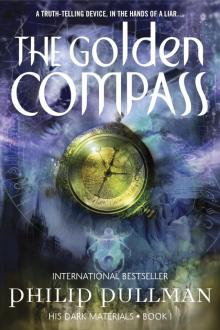 The Golden Compass
The Golden Compass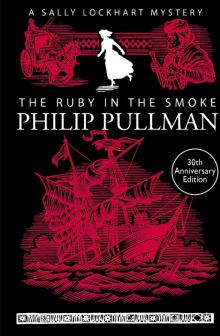 The Ruby in the Smoke
The Ruby in the Smoke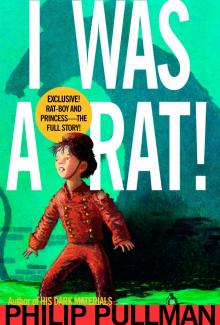 I Was a Rat!
I Was a Rat!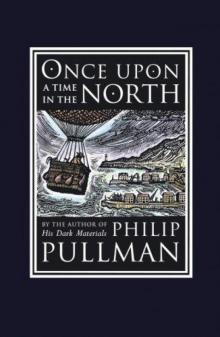 Once Upon a Time in the North
Once Upon a Time in the North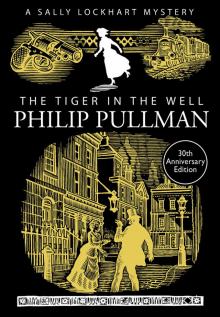 The Tiger in the Well
The Tiger in the Well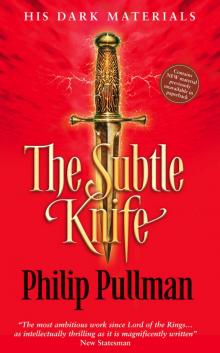 The Subtle Knife
The Subtle Knife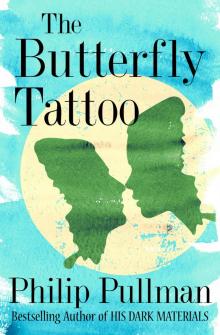 The Butterfly Tattoo
The Butterfly Tattoo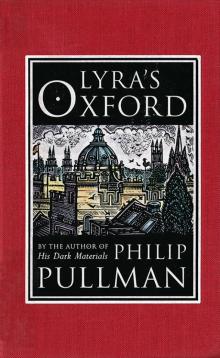 Lyra's Oxford
Lyra's Oxford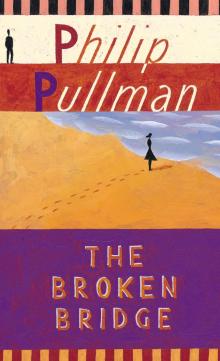 The Broken Bridge
The Broken Bridge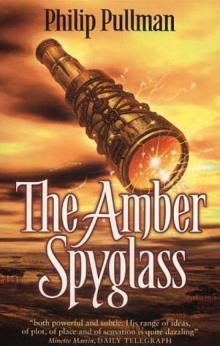 The Amber Spyglass
The Amber Spyglass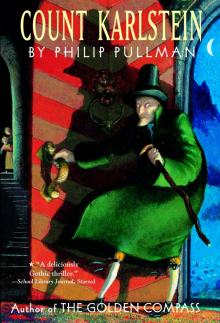 Count Karlstein
Count Karlstein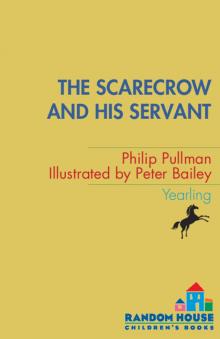 The Scarecrow and His Servant
The Scarecrow and His Servant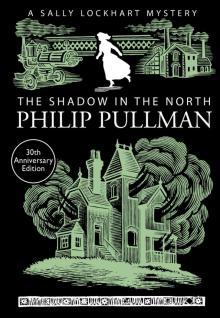 The Shadow in the North
The Shadow in the North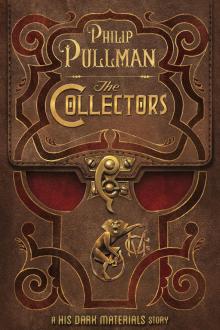 The Collectors
The Collectors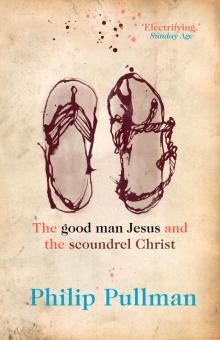 The Good Man Jesus and the Scoundrel Christ
The Good Man Jesus and the Scoundrel Christ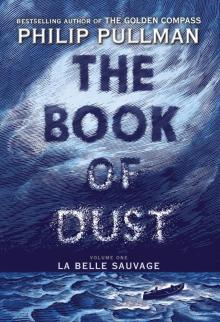 La Belle Sauvage
La Belle Sauvage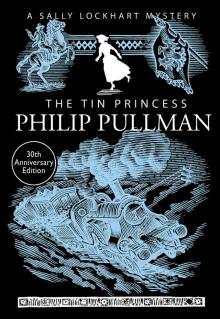 The Tin Princess
The Tin Princess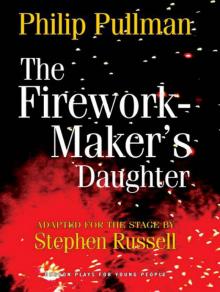 The Firework-Maker's Daughter
The Firework-Maker's Daughter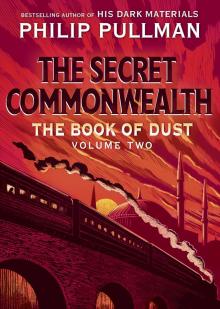 The Book of Dust: The Secret Commonwealth (Book of Dust, Volume 2)
The Book of Dust: The Secret Commonwealth (Book of Dust, Volume 2)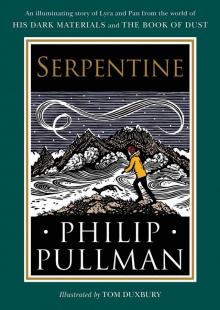 Serpentine
Serpentine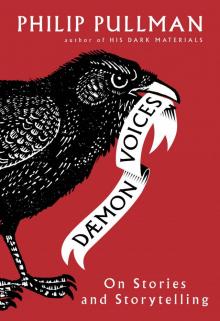 Daemon Voices
Daemon Voices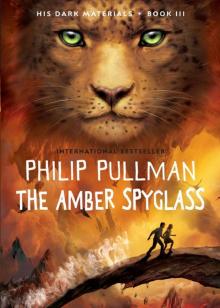 The Amber Spyglass: His Dark Materials
The Amber Spyglass: His Dark Materials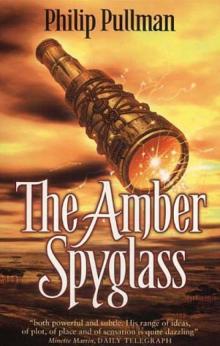 The Amber Spyglass hdm-3
The Amber Spyglass hdm-3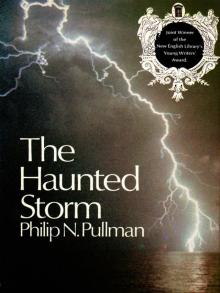 The Haunted Storm
The Haunted Storm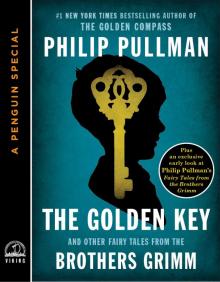 The Golden Key
The Golden Key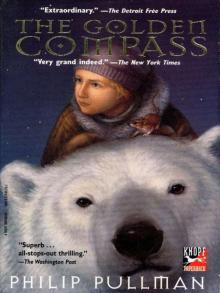 His Dark Materials 01 - The Golden Compass
His Dark Materials 01 - The Golden Compass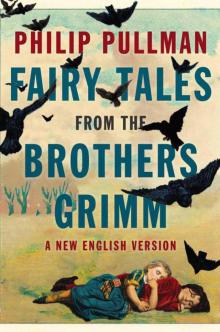 Fairy Tales from the Brothers Grimm: A New English Version
Fairy Tales from the Brothers Grimm: A New English Version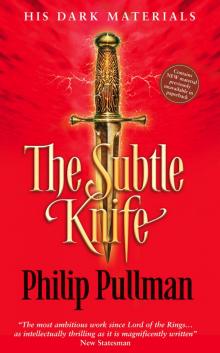 His Dark Materials 02 - The Subtle Knife
His Dark Materials 02 - The Subtle Knife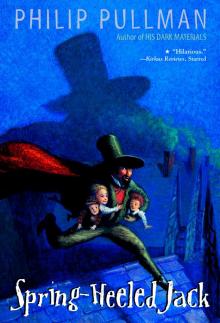 Spring-Heeled Jack
Spring-Heeled Jack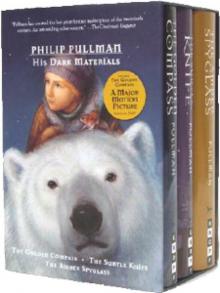 The Golden Compass hdm-1
The Golden Compass hdm-1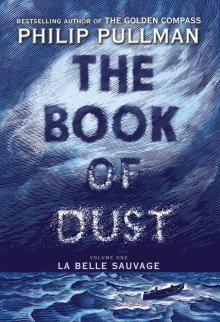 The Book of Dust, Volume 1
The Book of Dust, Volume 1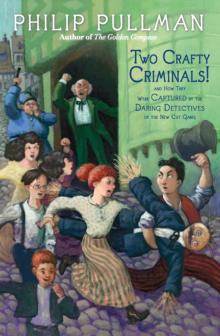 Two Crafty Criminals!
Two Crafty Criminals!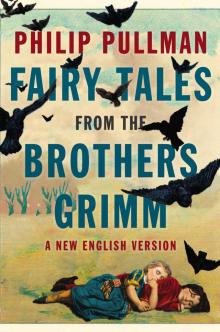 Fairy Tales from the Brothers Grimm
Fairy Tales from the Brothers Grimm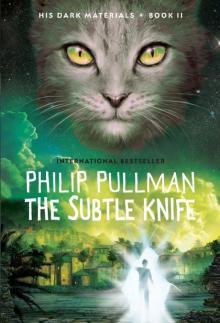 The Subtle Knife: His Dark Materials
The Subtle Knife: His Dark Materials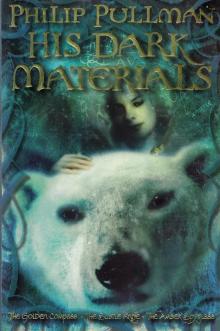 His Dark Materials Omnibus
His Dark Materials Omnibus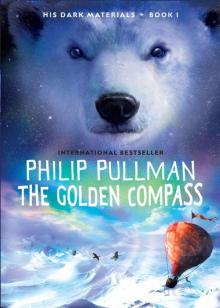 The Golden Compass: His Dark Materials
The Golden Compass: His Dark Materials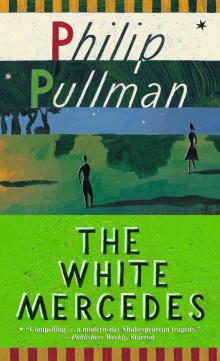 The White Mercedes
The White Mercedes